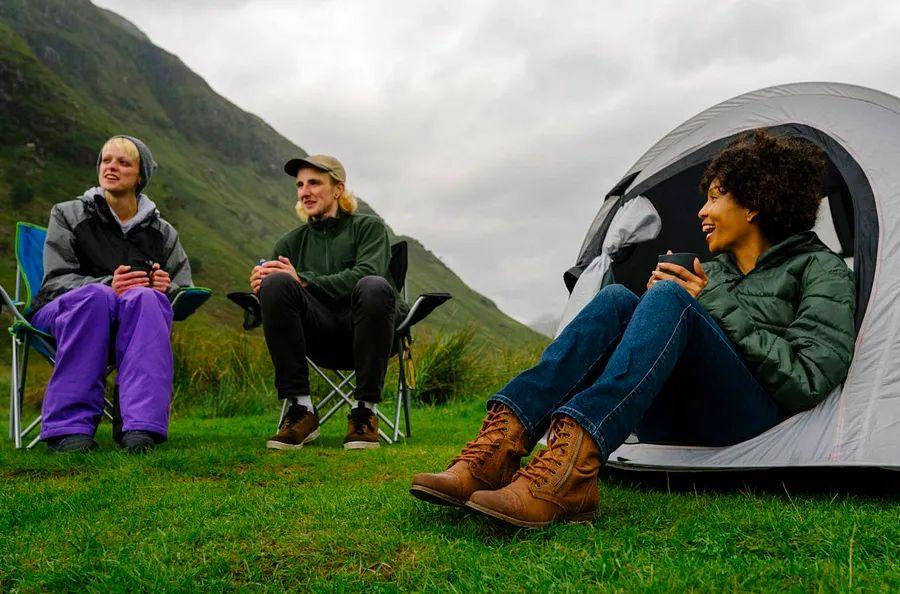10 insider secrets every traveler should know before visiting Scotland

Filled with hidden glens, eerie castles, and mysterious lochs, brimming with extraordinary festivals and the sounds of bagpipes, and drenched in peaty whisky, gin, and rain, Scotland is as perplexing as it is fascinating.
This country has a knack for both astonishing and confusing visitors, delivering a unique blend of joy and surprise. Not that you'd guess from the upbeat locals who take everything in stride.
For all the unexpected situations you might face here—like hiking in shorts while holding an umbrella or battling the pesky midge—the truth is that Scotland is quite accessible if you know the essential tips and practicalities.
What’s the best way to get around when exploring beyond Edinburgh? How much time do you need to make a trip to Scotland's islands worthwhile? And is it really acceptable to try a deep-fried Mars Bar in Glasgow? (Spoiler: yes, but hardly anyone actually does.)
Here are some essential tips and etiquette to keep in mind before your trip to Scotland.
Be prepared for all types of weather, even during the summer months...
A common quip is that Scotland experienced a fantastic summer last year—it happened on a Wednesday. While this is a humorous exaggeration, it reflects a truth: the weather here can change rapidly, offering a mix of all four seasons in a single day, with summer often bringing rain, sunshine, and everything in between.
For the most reliably sunny and dry days, plan your visit for May, early June, or September. If you prefer shades of gray, any season will be perfect for you.
 Scotland's summer weather isn't guaranteed to be sunny, so make sure to dress appropriately if you're attending the Edinburgh Fringe Festival © Skully / Shutterstock
Scotland's summer weather isn't guaranteed to be sunny, so make sure to dress appropriately if you're attending the Edinburgh Fringe Festival © Skully / Shutterstock...and keep an eye on the weather if you're heading to the Edinburgh Fringe Festival
Brace yourself for some not-so-great news. Despite the Edinburgh Fringe Festival, the world’s largest arts festival, taking place during the peak summer month of August, it often experiences rainy weather. Waterproof footwear and an umbrella that can withstand strong winds are just as crucial as your enthusiasm for comedy, theater, and lively beer gardens.
Scottish pound sterling notes are accepted throughout the UK
It may seem strange, but the variety of banknotes in the UK can be quite confusing. All pound sterling notes, whether issued in Scotland, England, or Northern Ireland, are legal currency across the country. You can use English notes in Scotland, but many shops may not accept Scottish notes outside of Scotland. Some currency exchange services even offer less favorable rates for Scottish-printed notes.
Be cautious when discussing politics
Scotland is politically divided. On one side, the independence movement is gaining traction, while many Scots firmly wish to stay within the United Kingdom. To understand the landscape, note that Scotland operates as a de facto separate nation with its own parliament, existing in a political and monetary union with England, Wales, and Northern Ireland. This knowledge can help avoid any awkwardness when conversing with locals at the pub.
The coming decade may bring significant changes to Scotland. A second independence referendum is frequently mentioned following the 2014 vote that fell short before Brexit, though Westminster has been reluctant to support it. Having at least a basic grasp of the country’s sociopolitical history will enhance your travel experience, reminding you that you're not just visiting a location but also a pivotal moment in time.
 Driving in Scotland requires patience, but the stunning views like this make it worthwhile © DrimaFilm / Shutterstock
Driving in Scotland requires patience, but the stunning views like this make it worthwhile © DrimaFilm / ShutterstockDriving outside urban areas can feel like an art form
At first glance, Scotland may seem small on the European map, making it look easy to traverse in just a few days. But that's a misconception.
The unique jigsaw-like shape of Scotland, with its winding sea lochs, rugged islands, and twisting glens, means that traveling from one place to another outside the major cities typically takes much longer than what GPS and Google Maps predict.
Many roads are single-lane, necessitating frequent pulls to the side to allow oncoming traffic to pass (a friendly wave is part of the experience). Slow vehicles like tractors and motorhomes can significantly delay travel, especially on the now-famous North Coast 500. You may also encounter sheep and red deer blocking the road.
Patience is essential, and using a car or camper is generally the quickest and most efficient way to get around, compared to Scotland's limited train and bus services. Alternatively, you can take your bike, inflatable kayak, or canoe on a Scotrail service, which now offers more bike carriages and space for larger sports equipment, allowing you to explore the scenic spots in between.
Allow yourself more time, not less
The top regret among first-time travelers to Scotland? Attempting to squeeze too much into one trip. If you're visiting Edinburgh, Glasgow, and then heading to the Highlands or Stirling and Perthshire, plan for at least a week. If you want to include the Isle of Skye or the Outer Hebrides, two weeks is more realistic—and even then, you might still feel rushed.
To truly appreciate Scotland and its unique islands, aim for three to four weeks. Consider a more sustainable approach by focusing on one specific area, such as the Borders and Dumfries and Galloway or Aberdeenshire and Moray. This way, you'll have the chance to stop more frequently and invest in the rural towns and villages you might otherwise miss.
 You don't have to have Scottish roots to buy a kilt during your visit © AlxeyPnferov / Getty Images
You don't have to have Scottish roots to buy a kilt during your visit © AlxeyPnferov / Getty ImagesFeel free to wear a kilt if you wish
The common notion that only those of Scottish heritage should wear a kilt is nonsense. A pleated, knee-length skirt and furry sporran look great on everyone, no matter their gender, nationality, or connection to Scotland. If you're in need of a wardrobe upgrade, Scotland is the perfect place to get fitted for tartan.
Don't hesitate to get involved
Visiting the pub is a beloved tradition in Scotland, nearly regarded as a right. The Scots are some of the friendliest and most approachable folks around. They also enjoy their drinks, boasting a whole array of terms for being tipsy, such as blootered, bladdered, hammered, steamin’, smashed, and wrecked. You'll likely find them inviting strangers to share a drink or a dram, especially during Hogmanay (New Year).
Be ready for more invitations to parties and pubs than you might receive in other parts of the world. Just like anywhere else, it's wise to stay aware of your surroundings.
 You can easily refill your water bottle from a stream, but it's wise to use a purifying tablet as well © Leon Harris / Getty Images
You can easily refill your water bottle from a stream, but it's wise to use a purifying tablet as well © Leon Harris / Getty ImagesIs it safe to drink water from the tap?
Absolutely. Scotland is abundant in water resources. Reduce single-use plastic by bringing a refillable bottle and make the most of the numerous rivers and lochs while enjoying the outdoors.
Are travelers entitled to free healthcare in Scotland?
NHS Scotland, the country’s devolved National Health Service, plays a vital role in everyday life. Visitors from most European nations are eligible for certain emergency treatments in case of accidents while on holiday, provided they have the European Health Insurance Card (EHIC). Travelers from other regions should verify any reciprocal healthcare agreements between their home country and the UK.

1

2

3

4

5
Evaluation :
5/5